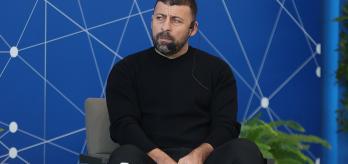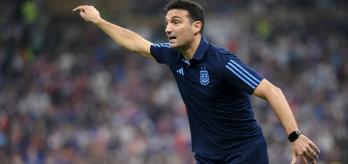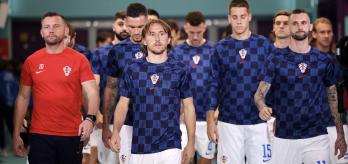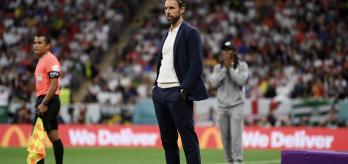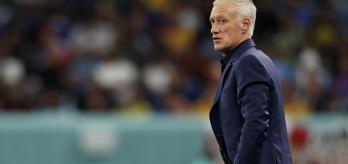00:06
Progression in refereeing from the 2022 World Cup
Busacca starts by expressing his general satisfaction with the quality of refereeing at Qatar 2022TM, following a discussion with coaches and other referees about their expectations for refereeing in the modern game. He then explains that FIFA selected its referees six months before the tournament, instilling in them a collective philosophy: an in-depth understanding of the game, the teams involved, and how these teams play. Like players and coaches, referees must therefore adjust their approach based on teams’ tactics and style of play, hence why FIFA’s refereeing team provides on-field and VAR officials with as much information as possible about both sides before a game.
02:20
Pre-match preparation for referees
FIFA’s head of refereeing discusses the importance of general preparation, using nutrition as an example; referees must always eat well, not only in the build-up to a game. He also reflects on FIFA’s efforts to prepare referees in the very little time they have to work together before major tournaments. As they mostly officiate in their home confederations, FIFA cannot influence their knowledge of football or refereeing ability, but it can provide an overarching philosophy, based on an in-depth understanding of the game, teams and tactics. Referees must therefore be passionate about football and understand what the game means for the greater good of the sport.
04:10
What the speed of the modern game means for referees
Modern-day referees must be very fit, able to cover 10-12 km in a game, but they must also know how to conserve energy effectively. Like players, referees develop this ability through a greater understanding of the game, by anticipating where the ball is likely to be played next. Since this understanding does not come naturally to all referees, they will now train with players on a daily basis, asking them to simulate certain in-game situations. This allows them to improve their tactical understanding, and, in turn, to adapt accordingly from game to game, reducing the required amount of running.
06:00
The effect of high-speed running on referees’ positioning
Now that teams can make up to five substitutions, they are much fresher overall. Referees must therefore be smart, conserving their energy as much as possible and only running when absolutely necessary, particularly at high speed. This explains why there is very little emphasis on the distance covered by referees; the most important thing is that they still have enough energy to take up the right positions late in the game. Busacca also reiterates the fact that understanding the game and conserving energy go hand in hand, before stressing the importance of adequate recovery between games for referees, which come thick and fast at World Cups.
07:25
The importance of assistants and technology to referees
Referees are part of a team, greatly supported by their assistants and technology. Busacca argues that officials need the help of this technology in such a high-stake sport. However, the Swiss explains that FIFA’s refereeing team only addresses the issue of VAR once referees have undergone adequate pre-match preparations and bought into its philosophy. Therefore, the ultimate goal for world football’s governing body is for referees to continue playing a leading role on the pitch, and for technology to intervene only when required, as a supporting function.
08:42
Exciting developments for refereeing ahead of the 2026 World Cup
He then turns his attention to the importance of pre-match preparation. Albeit relatively straightforward in Qatar, with very little travel between games, this will be something we have to prepare for in 2026, in the USA, Canada and Mexico, given the need to fly between most host cities, adversely affecting the recovery and preparation of referees from game to game.
09:50
The need to manage recovery for referees
Referees must take the same approach as players towards the physical demands of the game, placing great emphasis on recovery and mental preparation. Busacca looks back on his career, explaining how he struggled to sleep or would often go to bed late after a game. As a result, he found it difficult to recover and physically and mentally prepare for the next game, which would normally be two-to-three days later in a major tournament. Given this tight turnaround, FIFA must carefully consider the number of referees they need before a tournament. However, it is hard to strike the perfect balance, because appointing too many referees means too large a gap between games for officials.









